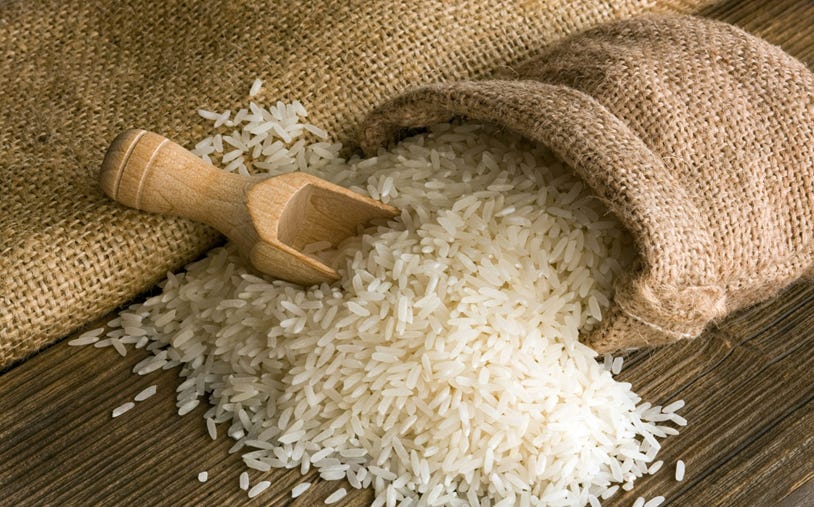Bharat Unveils World’s First Genome-Edited Rice
Hello Readers, 👋
🤗 Curious about what everyone is talking about? Today’s Bharat got your back!! Welcome to the today’s edition of Today’s Bharat, bringing you most compelling stories from breaking news to intriguing insights. As day changes there are more things to know, learn, experience in this life cherishing every moment on this beautiful planet. We have got news that keeps you informed, be it politics, global, culture, social issues, entertainment, sport, technology. Anything and everything just for you. 🥳🎉
💬 Bridging Perspectives
India has taken a significant leap in agricultural biotechnology by unveiling the world’s first genome-edited rice varieties. Announced by Agriculture Minister Shivraj Singh Chouhan, these innovative varieties promise to transform rice cultivation, boost yields, and address pressing environmental challenges.
The New Rice Varieties: Kamala and Pusa DST Rice 1
Developed by the Indian Institute of Rice Research, Hyderabad (Kamala) and the Indian Agricultural Research Institute, Delhi (Pusa DST Rice 1), these varieties are expected to increase grain yield by 25-30%. Unlike genetically modified organisms (GMOs), these rice lines do not contain foreign DNA, making them comparable to conventionally bred crops. This distinction exempts them from the stringent regulatory approvals required for GMOs, paving the way for faster adoption.
Benefits and Impact
The new varieties are designed to replace widely used strains such as Sambha Mahsuri and Cottondora Sannalu, which are currently grown across 9 million hectares in India. Their adoption is projected to help reduce the area under paddy cultivation by five million hectares, contributing to water conservation and sustainability goals. Additionally, these rice varieties are expected to produce an extra 4.5 million tonnes of paddy and reduce greenhouse gas emissions by 20% (32,000 tonnes) in the recommended cultivation areas.
Regulatory and Intellectual Property Considerations
In 2022, the Indian government exempted certain genome-edited crops from the strict bio-safety regulations that apply to GMOs, accelerating their development and commercialization. All intellectual property rights issues related to these varieties will be addressed over the next few years as they move closer to commercial release.
The Science Behind Genome Editing
Genome editing, particularly through site-directed nucleases (SDN), allows scientists to make precise changes to an organism’s DNA without introducing foreign genetic material. This technology enables the creation of crops with desirable traits such as drought and salinity tolerance, disease resistance, and improved yield-essential for adapting to climate change and ensuring food security.
Global Context and Future Prospects
Currently, around 30 countries classify genome-edited crops as non-GMO, recognising their safety and potential. India’s breakthrough positions it alongside global leaders like the US and China in agricultural biotechnology. With over 40 crops in the pipeline for genome-edited improvements, India is poised to usher in a second green revolution, ensuring a sustainable and secure food future.
📰 News Roundup
Punjab’s Water Resources Minister Barinder Kumar Goyal moved a resolution in the state assembly, declaring Punjab will not provide “a single drop of water” to Haryana. The resolution was discussed in a special session, highlighting the ongoing water-sharing dispute between the two northern Indian states.
🏆 Sports Update
Punjab Kings defeated Lucknow Super Giants by 37 runs in Dharamsala, with Prabhsimran Singh scoring 91 off 48 balls. Captain Rishabh Pant lost his cool at pacer Avesh Khan for not following bowling plans, as he conceded 57 runs in 4 overs.
🏛️ Political Tensions
The Supreme Court dismissed a plea by Sultana Begum, who claimed to be heir of Mughal emperor Bahadur Shah Zafar II and sought possession of Delhi’s Red Fort. The Court termed her petition "wholly misconceived," upholding prior High Court rulings citing inordinate delay and lack of legal basis.
🤖 Science & Tech
Microsoft is retiring Skype after 21 years, transitioning users to Microsoft Teams for enhanced features and integration. Users are advised to back up their Skype data and contacts before the shift. Microsoft provides detailed instructions on transferring data to ensure a smooth migration to Teams.
🌐 Global Affairs
Russian President Vladimir Putin, in a call with PM Narendra Modi, strongly condemned the Pahalgam terror attack that killed 26, offering full support to India’s fight against terrorism and condolences for the victims. Putin stressed the need to bring the attackers and their supporters to justice. More details awaited.
🙃 Fun Fact
Pilates was originally developed by Joseph Pilates during World War I while he was interned in a British camp. To keep fellow prisoners healthy, he ingeniously used bed springs and available materials to create exercises, which later inspired the Pilates equipment like the Reformer and Cadillac.
⏳ What Happened Today in History
The third Sikh Guru, known for introducing the 'manji system' in Sikh religious organization and for his significant contributions to Sikh scripture and community leadership, was born on this day in 1479.
We appreciate your presence with us today on our newsletter! We trust that the information has been useful. Moving on, we are eager to provide even more interesting content in the near future. Please do not hesitate to tell us your opinions and what you would wish to see in future editions. Goodbye for now, be creatively active and keep in touch! Have an amazing day!
Don’t Miss Out!!! Stay for Tomorrow’s Update!!! ⏰
Follow us 🔗
Instagram - click here


